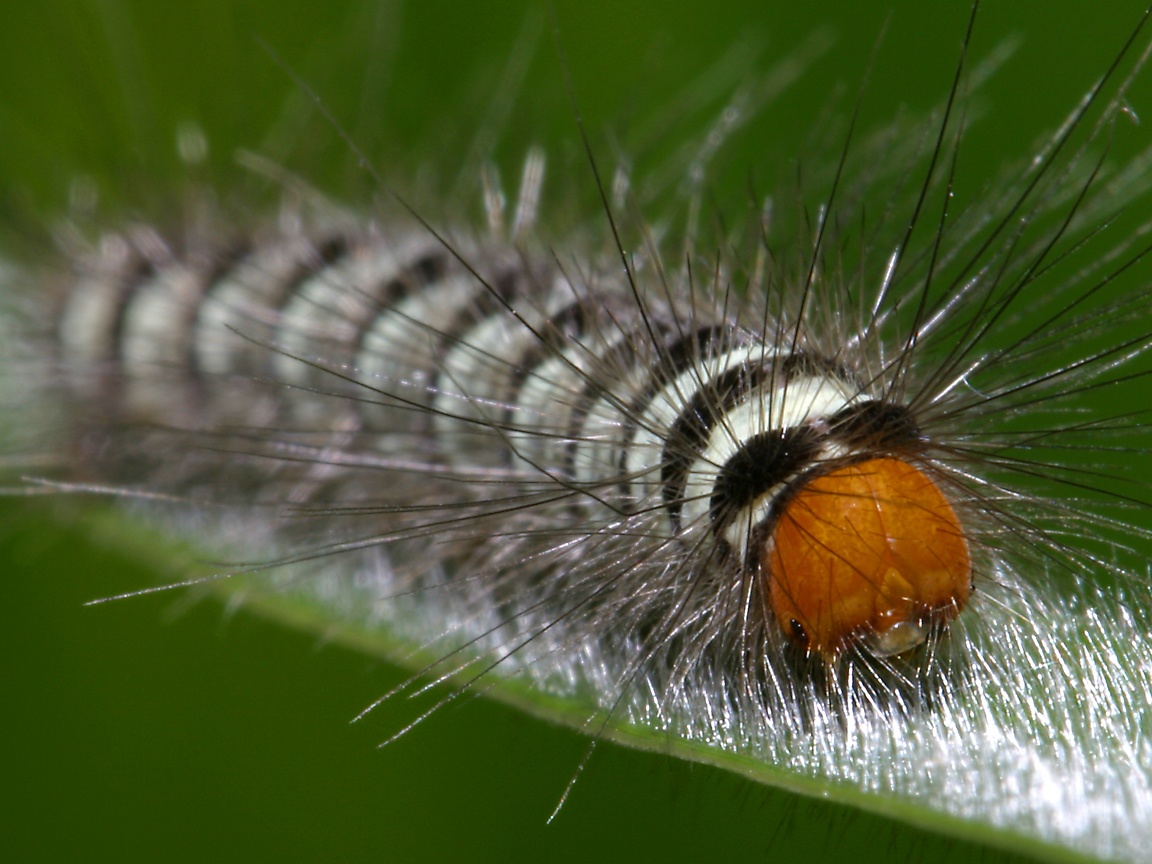




I'll End The War In Iraq Responsibly... Finish The Fight Against Al Qaeda And The Taliban In Afghanistan... Provide Affordable Health Care for Every American... Cut Taxes For 95% Of All Working Families... End Dependence On Oil From Middle East In Ten Years... Invest $150 Billion In Renewable Sources Of Energy Over The Next Decade... Rebuild Our Military To Meet Future Conflicts...
1) TV Sitcoms
2) TV Dramedy
3) Pre-20th Century Period Pieces
4) Sci-Fi & Fantasy
5) Social & Cultural Documentaries
 a friend of mine recently shared this link with me. i think as a kid i always wanted to strip down to the bottom of these kinds of toys to see their magic for myself, but i also dealt with some serious anthropomorphic issues with my toys--like thinking i needed to kiss each one before going to sleep, as one might get jealous of the other's attention-getting. anyway, enough about me as a young neurotic, and more about how cool my pet monster looks stripped of his characteristic dignity.
a friend of mine recently shared this link with me. i think as a kid i always wanted to strip down to the bottom of these kinds of toys to see their magic for myself, but i also dealt with some serious anthropomorphic issues with my toys--like thinking i needed to kiss each one before going to sleep, as one might get jealous of the other's attention-getting. anyway, enough about me as a young neurotic, and more about how cool my pet monster looks stripped of his characteristic dignity.


 i know, i know, all the ladies (and many dudes) do too. but my crush crippled me ages ago, i swear. anyway, if you don't know her by now, she's most famously known for hosting a show on air america and near-daily appearances in MSNBC punditry.
i know, i know, all the ladies (and many dudes) do too. but my crush crippled me ages ago, i swear. anyway, if you don't know her by now, she's most famously known for hosting a show on air america and near-daily appearances in MSNBC punditry.A graduate of Castro Valley High School in Castro Valley, California, Maddow later obtained a degree in public policy from Stanford University in 1994. She then received a Rhodes Scholarship in 1995 and used it to obtain a D.Phil. in political science from Lincoln College, Oxford University. Her political activism has focused on AIDS and prisoners' rights, especially the prevention of the spread of HIV and AIDS in prisons. She is gay, and is an outspoken advocate for gay and progressive issues.



•Voted to end "the Title X family planning program, credited with helping prevent over 9 million abortions."
•Voted against funding teen-pregnancy-prevention programs and ensuring that "abstinence-only" programs are medically accurate.
•Voted for the domestic gag rule, which would have prohibited federally funded family-planning clinics from providing women with access to full information about their reproductive-health options.
•Voted to take $75 million from the Maternal and Child Health Block Grant to establish a new "abstinence-only" program that censors information about birth control.
•Declined to help reduce the need for abortion and improve maternal health by opposing effort to require insurance coverage for prescription birth control, improve access to emergency contraception, and provide more women with prenatal health care.
•Voted against legislation that would have prevented unintended pregnancy by investing in insurance coverage for prescription birth control, promoting family-planning services, implementing teen-pregnancy-prevention programs, and developing programs to increase awareness about emergency contraception
 because i clearly suck at sitting down and doing the necessary after a long, fantastic vacation (by writing an account of the trip and putting together a nice slide show of photos), i am going to submit to the fact that it will come at its own pace. and because i had such a long hiatus, i've been storing up links to share like crazy. so in no particular theme or order, here are some early week treats:
because i clearly suck at sitting down and doing the necessary after a long, fantastic vacation (by writing an account of the trip and putting together a nice slide show of photos), i am going to submit to the fact that it will come at its own pace. and because i had such a long hiatus, i've been storing up links to share like crazy. so in no particular theme or order, here are some early week treats:And amidst these obstacles, anti-contraceptive activists attack women's access to contraception on every other level: President George W. Bush's Deficit Reduction Act (DRA) of 2006 bars pharmaceutical companies from selling birth control at a discounted price to university health centers and safety-net clinics, leaving low-income and college women paying full price for birth control.



Over the course of this historic, thrilling, aggressive primary election, we've seen more female pundits than ever before writing and speaking about presidential politics. We've experienced unprecedented interest from male politicos in women's participation in the electoral process. And demands for women's leadership have been given their fairest hearing to date in the United States, with Democrats nationwide expecting Obama to give close consideration to female vice presidential prospects -- not only because there are a few wildly successful and talented women who would be great at the job, but also as a gesture of good will toward the feminist energy that animated so many Clinton supporters.









me: i told cara about it and she scolded me for running with really old shoes
me: they're nearly ten years old
me: you're supposed to change them up every six months, because the tread wears
me: oops, i guess
mike: man!
mike: melissa
mike: i know you totally hate new shoes, but buy some online this instant!
me: hahahha

I want to talk to you about caterpillars.Caterpillars have bristles on there backs because it helps them blend in and wich bird would want to eat a hary thing.Caterpillars have six eyes three on one side and three on the other.Caterpillars have six real legs and ten fake legs.When a caterpillar turns into a butterfly it dousent have the fake legs.I know a lot about caterpillars because i'm learning about them in class.
your friend
madison

I really don't get the whole concept of ghosts. I mean, why are ghosts supposedly so mad all the time? Isn't a ghost just somebody's grandpa? My grandpa was a Norwegian carpenter named Ole who smoked a pipe and ate licorice all day. Why would he go haunt somebody? Isn't there enough licorice in heaven? I don't know a single person who's been killed—or even inconvenienced—by a ghost, and that's why being afraid of a ghost is a waste of time. You know what I'm afraid of? A HUNGRY LION! A guy with a knife! A see-through grandpa who just hangs around your house all day and rearranges the furniture (and sometimes makes a noise!) is NOT SCARY.
Anyway. The Orphanage is a movie about Spanish ghosts—specifically baby ghosts, which are even less scary than grown-up ghosts (if that's possible). A woman named Laura (Belen Rueda) moves back to the orphanage where she spent her childhood. She has a handsome-ish husband (Fernando Cayo) and the world's cutest baby son (with AIDS!) and her orphanage is a magic Spanish castle by the sea. Unfortunately for Laura, she also has... ghooooooosts!!!
The ghosts are lonely and bored, so they start kickin' it with Laura's baby son, and that's when the problems arise. The head ghost, Tomás, wears a dirty sack mask with rotten eyeholes and a janky face painted on it—a horror-movie cheap shot if I've ever seen one. Granted, it's fucking creepy looking, but again: What exactly is a baby ghost going to DO to me after it crawls into my bed at night and I think it's my handsome-ish husband? Cuddle me TO DEATH?
The Orphanage is medium-scary, as long as you don't think about how dumb ghosts are. In fact, the worst shit in the movie is done to humans by humans—not ghosts. Because ghosts just want to be pals, you know?




Help me raise money for charity: water as I train for and run the America's Finest City Half Marathon in San Diego, CA on August 17, 2008.
charity: water is a non-profit initiative bringing clean water and basic sanitation into impoverished communities. Since charity: was founded and began activity in August 2006, they have funded the construction of more than 250 wells that, when completed, will provide clean drinking water to 150,000 people.
Unsafe water and lack of basic sanitation causes 80% of all sickness and disease, and kills more people every year than all forms of violence, including war. Many people in the developing world, usually women and children, walk more than three hours every day to fetch water that is likely to make them sick. Those hours are crucial, preventing many from working or attending school. Additionally, collecting water puts them at greater risk of sexual harassment and assault. Children are especially vulnerable to the consequences of unsafe water. Of the 42,000 deaths that occur every week from unsafe water and a lack of basic sanitation, 90% are children under 5 years old.
“But Magda,” you may ask, “what’s in it for me?” In addition to helping me build wells in Africa, India and Bangladesh, you too can experience the joy of running a half marathon without any of the discomfort, sweat, or risk of heat stroke. Why choke down those disgusting packets of energy gel when I’ll do it for you? Take it easy, stay in bed. No, I insist. Let me get up at 6 a.m. for training races. Let me dump little paper cups of water over my head. Let me wear the unflattering shorts. Really. It’s my pleasure. Read my training blog and pat yourself on the back every time I add a workout. Or comment on photos or videos. It's just as important as putting in road time.
Donate per mile, per minute of race time, per blister. Give $1, $10 or $100. 100% of your donation goes to water and sanitation projects on the ground.
To donate, visit: http://www.charityis.org/promos/magda/
To read my training blog, visit: http://evilqueenmagda.sweat365.com/
For more information visit charity: water at
http://www.charitywater.org




In the future, every U.S. citizen will get to be Sacagawea for 15 minutes. For the low price of admission, every American, regardless of race, religion, gender and age, will climb through the portal into Sacagawea's Shoshone Indian brain. In the multicultural theme park called Sacagawea Land, you will be kidnapped as a child by the Hidatsa tribe and sold to Toussaint Charbonneau, the French-Canadian trader who will take you as one of his wives and father two of your children. Your first child, Jean-Baptiste, will be only a few months old as you carry him during your long journey with Lewis and Clark. The two captains will lead the adventure, fighting rivers, animals, weather and diseases for thousands of miles, and you will march right beside them. But you, the aboriginal multitasker, will also breast-feed. And at the end of your Sacagawea journey, you will be shown the exit and given a souvenir T shirt that reads, IF THE U.S. IS EDEN, THEN SACAGAWEA IS EVE.
Sacagawea is our mother. She is the first gene pair of the American DNA. In the beginning, she was the word, and the word was possibility. I revel in the wondrous possibilities of Sacagawea. It is good to be joyous in the presence of her spirit, because I hope she had moments of joy in what must have been a grueling life. This much is true: Sacagawea died of some mysterious illness when she was only in her 20s. Most illnesses were mysterious in the 19th century, but I suspect that Sacagawea's indigenous immune system was defenseless against an immigrant virus. Perhaps Lewis and Clark infected Sacagawea. If true, then certain postcolonial historians would argue that she was murdered not by germs but by colonists who carried those germs. I don't know much about the science of disease and immunities, but I know enough poetry to recognize that individual human beings are invaded and colonized by foreign bodies, just as individual civilizations are invaded and colonized by foreign bodies. In that sense, colonization might be a natural process, tragic and violent to be sure, but predictable and ordinary as well, and possibly necessary for the advance, however constructive and destructive, of all civilizations.
After all, Lewis and Clark's story has never been just the triumphant tale of two white men, no matter what the white historians might need to believe. Sacagawea was not the primary hero of this story either, no matter what the Native American historians and I might want to believe. The story of Lewis and Clark is also the story of the approximately 45 nameless and faceless first- and second-generation European Americans who joined the journey, then left or completed it, often without monetary or historical compensation. Considering the time and place, I imagine those 45 were illiterate, low-skilled laborers subject to managerial whims and 19th century downsizing. And it is most certainly the story of the black slave York, who also cast votes during this allegedly democratic adventure. It's even the story of Seaman, the domesticated Newfoundland dog who must have been a welcome and friendly presence and who survived the risk of becoming supper during one lean time or another. The Lewis and Clark Expedition was exactly the kind of multicultural, trigenerational, bigendered, animal-friendly, government-supported, partly French-Canadian project that should rightly be celebrated by liberals and castigated by conservatives.
In the end, I wonder if colonization might somehow be magical. After all, Miles Davis is the direct descendant of slaves and slave owners. Hank Williams is the direct descendant of poor whites and poorer Indians. In 1876 Emily Dickinson was writing her poems in an Amherst attic while Crazy Horse was killing Custer on the banks of the Little Big Horn. I remain stunned by these contradictions, by the successive generations of social, political and artistic mutations that can be so beautiful and painful. How did we get from there to here? This country somehow gave life to Maria Tallchief and Ted Bundy, to Geronimo and Joe McCarthy, to Nathan Bedford Forrest and Toni Morrison, to the Declaration of Independence and Executive Order No. 1066, to Cesar Chavez and Richard Nixon, to theme parks and national parks, to smallpox and the vaccine for smallpox.
As a Native American, I want to hate this country and its contradictions. I want to believe that Sacagawea hated this country and its contradictions. But this country exists, in whole and in part, because Sacagawea helped Lewis and Clark. In the land that came to be called Idaho, she acted as diplomat between her long-lost brother and the Lewis and Clark party. Why wouldn't she ask her brother and her tribe to take revenge against the men who had enslaved her? Sacagawea is a contradiction. Here in Seattle, I exist, in whole and in part, because a half-white man named James Cox fell in love with a Spokane Indian woman named Etta Adams and gave birth to my mother. I am a contradiction; I am Sacagawea.








JACKSONVILLE, FLORIDA -- Mitt Romney was greeted warmly by a largely African-American crowd at the Martin Luther King, Jr. Holiday Parade in Jacksonville. He shook hands with several dozen parade-goers and even hugged a few of them.
Only one woman was noticeably annoyed by the former Massachusetts’ governor’s presence.
“Mitt Romney, go home!” she yelled. “You’re delaying the parade.”
As he posed for a picture with a group of young people, the typically old-fashioned Romney was relaxed enough to quote from a popular hit single from a few years back.
“Who let the dogs out?” he called out, as he stood there beaming in his shirt and tie. “Who! Who!”
